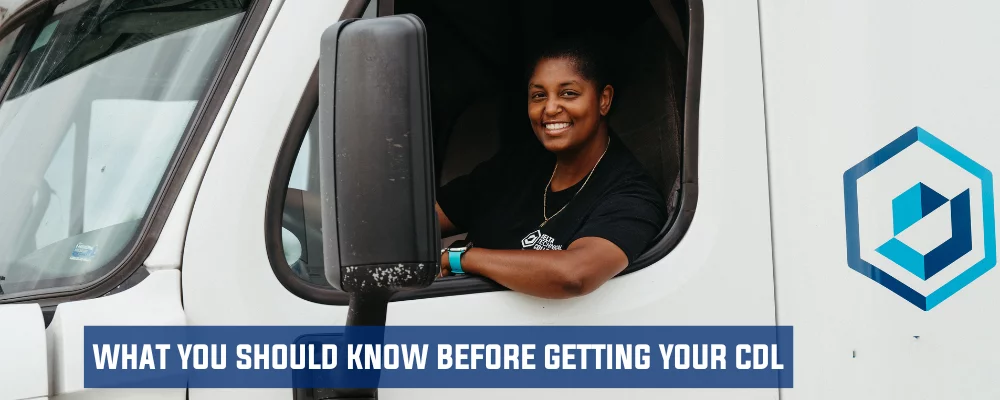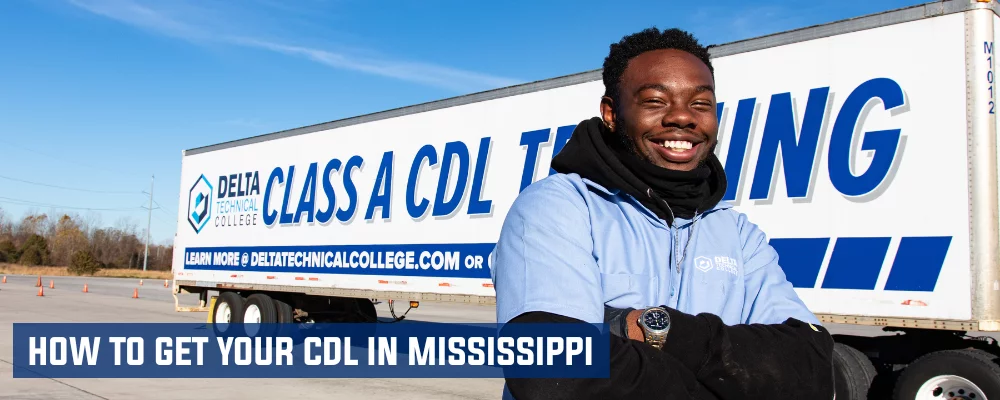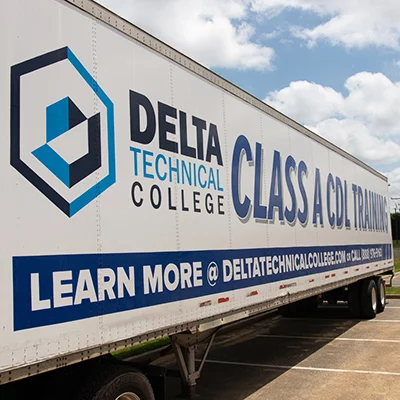Are you interested in beginning a truck driving career? Do you have questions about getting your commercial driver’s license (CDL)?
Read on to learn about the requirements and details you should know before trying to obtain your CDL license.
If you’re interested in learning more about the required CDL training, take a look at “How Long Does It Take to Get a CDL License?“
Requirements for Obtaining Your CDL License
There are a number of requirements for obtaining your CDL, all of which may vary by state:
- Existing driver’s license. Drivers must hold a valid, non-commercial driver’s license to obtain a CDL license.
- Age requirement. Drivers must be 18 years or older to acquire a CDL license and 21 years or older to drive across state lines or haul hazardous materials.
- Driving record. Drivers must have one to two years of driving experience before acquiring their CDL licenses. Their driving records must not include suspensions like acquiring driving points, traffic violations, DUIs/DWIs, failing to appear in court, or failing to pay child support. If drivers are suspended, they must refrain from driving for a designated time period, complete a defensive driving course, and comply with reinstatement fees.
- No criminal record. Drivers must be able to pass background tests.
- Proof of citizenship. Drivers must be able to prove their citizenship with a social security card or birth certificate.
- English comprehension. Drivers must be able to read and speak English.
- Physical and medical standards. Drivers must have a valid Medical Examiner’s Certificate, which acknowledges acceptable vision and health conditions.
If you’re interested in learning more about the trucking industry, take a look at “4 Reasons to Consider Truck Driving in 2018.“
How Long Will It Take to Train to Get a CDL License?
CDL license training can be completed at a trade school, which typically offers a shorter timeline than a four-year degree. The Delta Technical College (Delta Tech) CDL Training Course* is just 168 hours spread across 20 days, with evening and day classes offered. The coursework is split as follows:
- Week 1: This first week is spent in the classroom, familiarizing students with Mississippi state CDL knowledge, driving safety, air brakes, combination vehicles, log books, trip planning, and public and employee relations.
- Weeks 2-4: The rest of the program is spent in range, road, and remedial training, during which students will be reading and interpreting control systems. They will also learn about pre-trip vehicle inspections, post-trip vehicle condition reports, shift execution, backing, parking and docking procedures, coupling and uncoupling trailers, managing and adjusting vehicle speed, managing and adjusting vehicle space relations, identifying potential driving hazards, performing emergency maneuvers, identifying and adjusting to extreme driving conditions, and planning trips and recording/maintaining hours.
For more in-depth truck driving experience, students can enroll in the Delta Tech Professional Truck Driving Program,* which requires roughly 600 clock hours over 20 weeks. Throughout the program, students spend 300 hours in classroom training, 24 in range and observation, 24 in over-the-road, and 252 in remedial. Delta Tech offers day and evening classes for this program. The Professional Truck Driving coursework is divided as follows:
- Weeks 1-4: In the first month, students receive necessary knowledge on CDL permit test preparation, CDL endorsement preparation (doubles/triples and tankers), vehicle inspection for daily operation and safe practices, and hazardous material (hazmat) training.
- Weeks 5-12: In the second month, the program covers vehicle inspection for daily operation and safe practices. During this month, students read and identify instrument control systems. Lessons cover basic control of the truck, coupling and uncoupling, range maneuvers, road training, hours of service/logging, trip planning/map reading, communication, shipping and receiving, and wellness. The program also offers knowledge on defensive driving, hazard awareness, and extreme driving conditions.
- Weeks 13-20: For the remainder of the program, students learn about vehicle inspection, forklift training, load securement/cargo handling, preventative maintenance, FMCSA rules and regulations, weigh stations, transportation security, ELDT (entry-level driver training), company speakers, resume building, life on the road, and professionalism/soft skills. During this time, students are given preparation for state range and drive test.
The truck driver training programs at Delta Tech prepare students for CDL Class A license exams. CDL Class A licenses allow drivers, with proper endorsements, to operate any combination of vehicles totaling a weight of 26,001 or more, including Class B and Class C vehicles.
To learn more about training for a career in the trucking industry, read “How Much Training Does It Take to Become a Truck Driver?“
Contact the Delta Tech Admissions Team to learn more about the 20-day CDL Training Course and the 20-week Professional Truck Driving Program.
SOURCES
https://driving-tests.org/how-to-get-a-cdl-license/
https://www.dmv.org/commercial-drivers/cdl-class-types.php
Missouri CDL Requirements
Federal and State CDL Requirements



